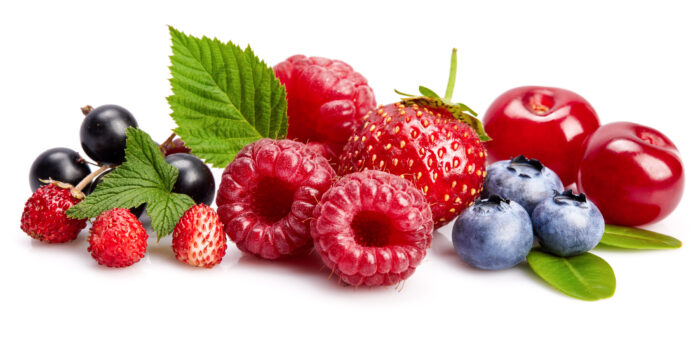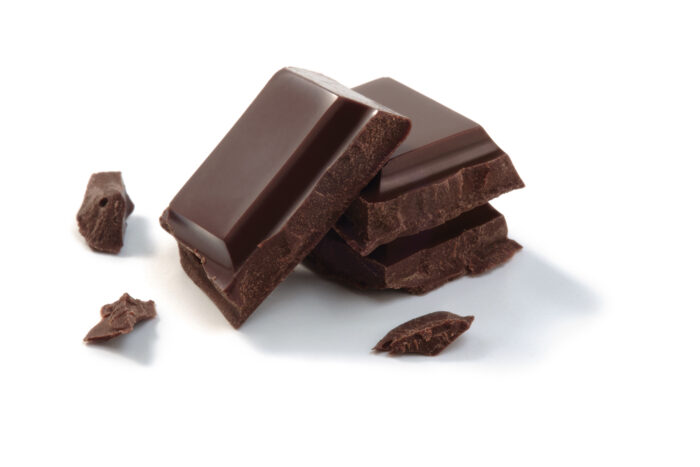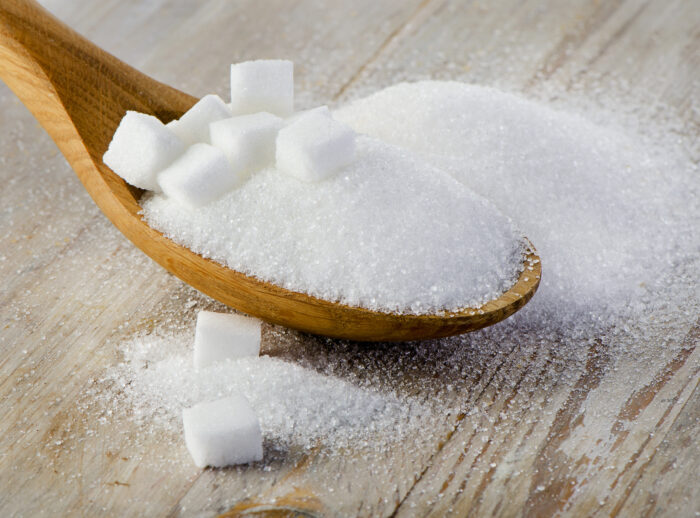Sweethearts…not so sweet for the heart
How to take care of your heart on Valentine’s Day – and every day!
By Sydney Amidon | Senior at North Carolina State University
Valentine’s Day is one of the sweetest days of the year, and not just in terms of relationships. Ironically, the desserts we love so much can be damaging to our hearts. Too much sugar, particularly added sugar, can increase your risk of developing cardiovascular disease, type II diabetes, high blood pressure, weight gain, and obesity.1 Added sugar refers to sugars that do not naturally occur in food but are added in when the food is being prepared.2 Here are a few tips to protect your heart by reducing sugar intake while still enjoying this occasion!

- CHOOSE FRUIT
Whether fresh, frozen or dried, try to include more of nature’s candy. Naturally sweetened, fruits are a great substitute when it is time for dessert. They are also good sources of Vitamin C, Folate, Potassium, antioxidants, and dietary fiber.2 It is estimated that 80% of people in the U.S. do not consume enough fruit.3

- TRY DARK CHOCOLATE
Look for darker versions of your favorite chocolate with 70% to 85% cocoa.1 Darker chocolate contains significantly less sugar than milk chocolate and is considered heart-healthy.1 Dark chocolate has been shown to reduce blood pressure and is associated with a lower risk for developing coronary heart disease.4,5

- WATCH OUT FOR ADDED SUGAR
The Dietary Guidelines for Americans recommends limiting added sugars to less than 10% of the calories we eat each day.3 Candy, soda, ice cream, and pastries all contain added sugar. Added sugar is an example of “empty” calories, which refers to calories that provide energy but have little nutritional value.2 Check food labels for products with little or no added sugar.

- CUT BACK ON SUGAR-SWEETENED BEVERAGES
When drinking juice, choose 100% fruit juice instead of sweet drinks that contain a lot of added sugar. Beverages such as soda, sweet tea, coffee, energy drinks, and fruit drinks contain more added sugar than you might realize. Adequate water intake is important for staying hydrated as well as proper digestion and absorption of nutrients.3 Adding fruit to water gives it a little more flavor.

- MODERATION
Pay attention to serving sizes, and savor every bite! Check the Nutrition Facts label and use portion control, especially when it is time for dessert. Reducing portion sizes and frequency of consumption are ways to practice moderation and not exceed caloric needs.3 A tip for not overeating is to get out an appropriate amount of whatever you are having, and put the rest away instead of eating straight out of the container.
At the end of the day, it is important to remember to consume a balanced diet and be physically active. Exercising regularly plays a huge role in maintaining a healthy heart.1 Maybe a romantic date could be going for a walk, run, or bike ride?
References
- American Heart Association. www.heart.org. https://www.heart.org/. Published 2021. Accessed February 10, 2021.
- MyPlate | U.S. Department of Agriculture. Myplate.gov. https://www.myplate.gov/. Published 2021. Accessed February 10, 2021.
- Home | Dietary Guidelines for Americans. Dietaryguidelines.gov. https://www.dietaryguidelines.gov/. Published 2021. Accessed February 10, 2021.
- Al-Safi SA, Ayoub NM, Al-Doghim I, Aboul-Enein FH. Dark chocolate and blood pressure: a novel study from Jordan. Curr Drug Deliv. 2011;8(6):595-599. doi:10.2174/156720111797635496
- Djoussé L, Hopkins PN, North KE, Pankow JS, Arnett DK, Ellison RC. Chocolate consumption is inversely associated with prevalent coronary heart disease: the National Heart, Lung, and Blood Institute Family Heart Study. Clin Nutr. 2011;30(2):182-187. doi:10.1016/j.clnu.2010.08.005